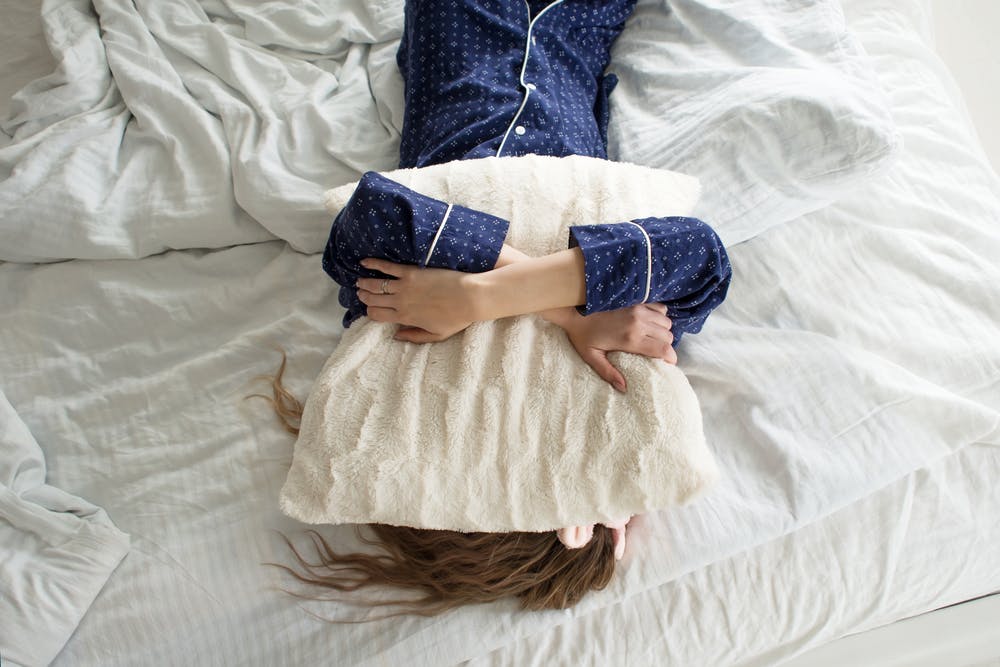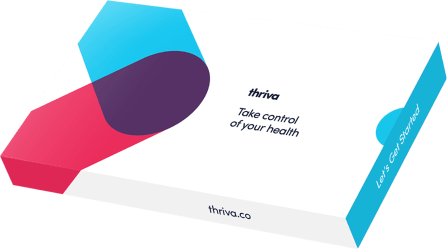Your hormones are chemicals that play a key role in controlling your body’s processes — like your body temperature and heart rate. If these powerful chemicals are out of balance, they can cause many symptoms. This includes feeling tired and having trouble sleeping. Understand why this happens and how to improve your energy levels through lifestyle changes and regular blood testing.
How do thyroid hormones affect energy?
Your thyroid gland produces hormones that help control your metabolism. If you don’t make enough of these hormones, it’s called an underactive thyroid (hypothyroidism). And if you make too many of these hormones, it’s called an overactive thyroid (hyperthyroidism).
If your thyroid is underactive, your bodily processes start to “slow down”, and you might feel tired, gain weight, have memory problems, and feel depressed. While if your thyroid is overactive, you might feel restless, and anxious and have trouble switching off, causing sleep problems.
You can check your thyroid health at home using a thyroid blood test.
How does oestrogen affect energy?
Oestrogen is a female sex hormone that’s essential for many body functions, including:
- puberty
- your menstrual cycle
- pregnancy
- bone strength
Because your oestrogen levels fluctuate throughout your life, there are many reasons your levels might be low.
Learn how your hormones affect your training with a sports performance blood test.
Oestrogen and your monthly cycle
Your oestrogen levels fluctuate throughout your monthly cycle. In the first two weeks of your cycle (follicular phase and ovulation), your oestrogen levels increase, associated with higher energy levels. In the third week of your cycle (luteal phase), your oestrogen levels drop, so it’s associated with lower energy levels.
The most common causes of low oestrogen levels include:
- early menopause — you start menopause before age 45
- exercising too much
- not eating enough — including eating disorders like anorexia
- medical conditions — like Turner syndrome or Fragile X syndrome (a genetic condition)
You can check your oestrogen levels by using a women's hormones blood test.
Oestrogen and menopause
As you age and approach menopause, your oestrogen levels naturally decrease. So it’s common to experience tiredness and fatigue at this time. Mood swings, headaches, and finding it hard to concentrate are also common menopausal symptoms.
Taking our premium magnesium supplements might help support your energy levels and reduce tiredness. But you should check with your doctor first before starting a supplement.
How does progesterone affect your energy?
Progesterone is best known for supporting pregnancy. But research suggests it plays a role in sleep too. Progesterone is thought to help stimulate a neurotransmitter called gamma-aminobutyric acid (GABA) — which helps you ‘switch off’ and sleep.
Find out more about how hormones affect your sleep.
Progesterone and your monthly cycle
Your progesterone levels are usually highest in week three of your cycle. This can make you feel more tired. But you might notice that you’re sleeping better, which can boost your energy levels.
In week four of your cycle, your progesterone levels fall. So you might have trouble sleeping, leading to tiredness and low energy.
Progesterone and menopause
As you approach menopause (perimenopause), your progesterone levels naturally decrease. This can contribute to sleep problems and tiredness.
Testosterone and energy
Testosterone is often called a “male” hormone. But it’s also essential for women’s health — you just produce it in much lower amounts. Low testosterone levels can cause tiredness and fatigue. This is because testosterone plays a role in our metabolism and production of red blood cells - which is vital for energy.
Your testosterone levels naturally drop with age. But low testosterone in women can also be caused by the pill (oral contraception) or issues with your ovaries.
Cortisol and energy
Cortisol is a significant hormone in helping your body cope with stress. But with many stressors in the modern world, your fight-or-flight response might be on overdrive. Over time, this can lead to abnormally high cortisol levels, which can cause poor concentration, difficulty sleeping, low mood, and weight gain.
Other factors that can affect your energy levels
If your hormones aren’t to blame for low energy levels, many other things could be the cause. These include:
- nutritional deficiencies — like iron deficiency anaemia or vitamin D deficiency
- not exercising enough
- anxiety and depression
- sleep problems
- diabetes
How to improve your energy levels
It’s important to understand what’s causing your low energy levels first so you can start suitable treatment. You could start by taking a vitamins blood test to determine if you’re getting enough nutrients.
The good news is, there are many things you can do to support your energy levels, including:
Eating regular meals
You should eat regular meals with three healthy snacks throughout the day to stabilise your blood sugar — this might help you feel less tired.
Some fatigue-fighting foods you could try are:
- porridge oats — release carbohydrates slowly, keeping you fuller for longer
- bananas — contain stable energy sources like potassium, magnesium, fibre, and carbohydrates
- chia seeds — their high-fibre content helps your body digest them slowly and promotes hydration
- dark chocolate — contains 43 mg of caffeine per 100 grams (compared to coffee, which has more than 100 mg a serving), making it a suitable alternative
- black beans — their low-glycemic index (GI) and high protein content keep you full, provide energy, and help stabilise your blood sugar
If you follow a vegan diet, you might not get enough vitamin B12 — a nutrient that supports your energy levels. If you’re deficient, you could try taking a vitamin B12 supplement. But always check with your GP first before starting a supplement.
Losing weight if you’re overweight
Carrying excess weight can make you feel more breathless, tired, and low in energy. If you need support managing your weight, speak to your GP or dietitian for advice to do this safely.
Exercising regularly
Modern life might mean you spend more time sitting down — so it’s vital to keep moving as often as possible. Research shows just a 15-minute walk can give you an energy boost.
Current UK guidelines advise 150 minutes of moderate-intensity exercise weekly or 75 minutes of vigorous physical activity.
Moderate-intensity activity raises your heart rate and makes you breathe faster, but you can still talk.
Examples of moderate-intensity activities are:
- brisk walking
- swimming
- jogging
- dancing
- water aerobics
- rollerblading
- riding a bike
Vigorous-intensity activity makes you breathe harder and faster, but you’ll unlikely be able to say more than a few words simultaneously.
Examples of vigorous-intensity activities include:
- running — you could try things like fartlek, tempo, or hill running
- swimming
- riding a bike fast or on hills
- walking up the stairs
- football, rugby, netball, basketball, and hockey
- skipping
- aerobics
- gymnastics
- martial arts — like karate, judo, or taekwondo
Always speak to your GP before increasing exercise frequency and intensity, especially if you have certain health conditions.

















